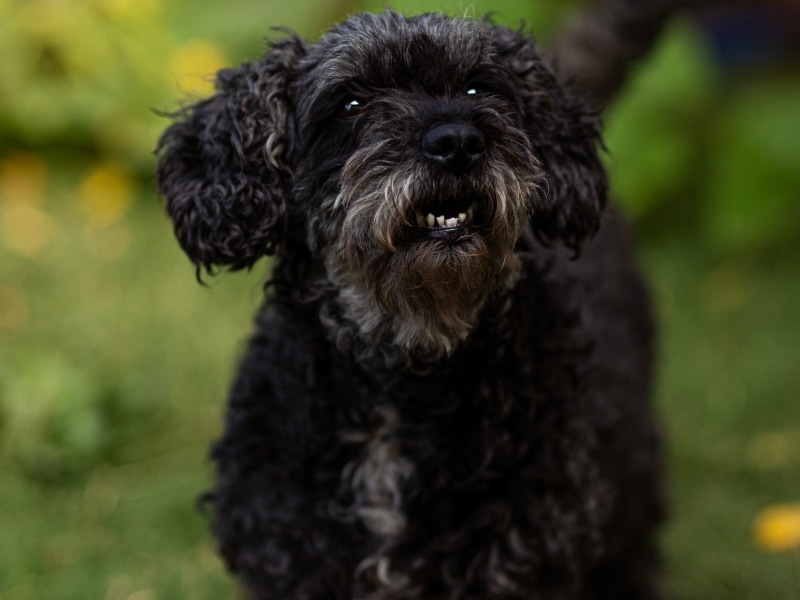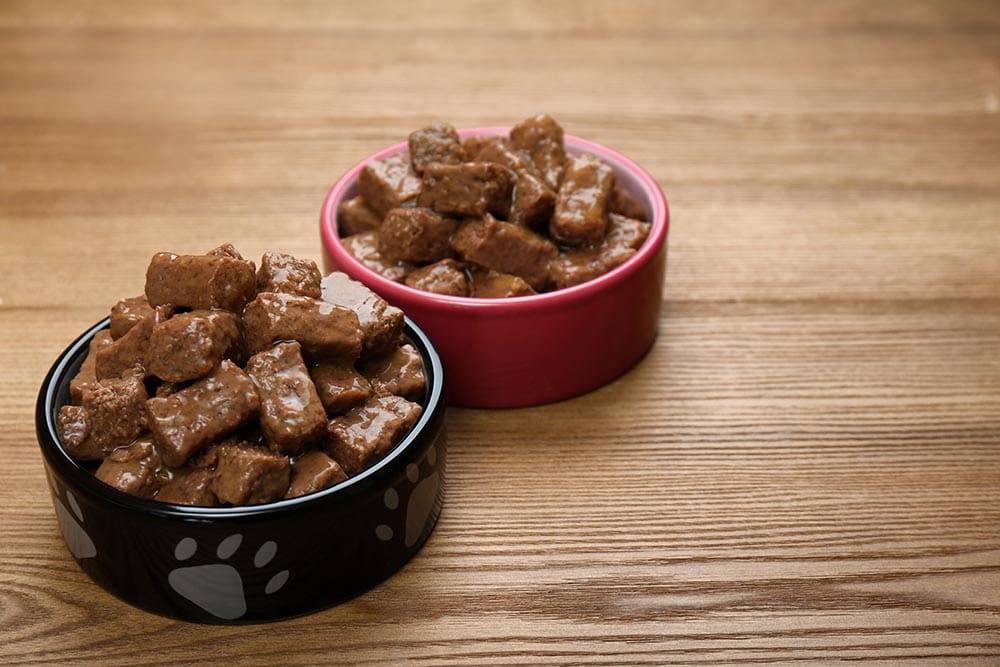Do Poodles Bark a Lot? Vet-Reviewed Tips, Facts & FAQ
Updated on

Typically, Poodles are known as moderate barkers. They aren’t the quietest dog out there, however, they aren’t the loudest, either. Of course, there are a lot of individual variances involved. Some Poodles may hardly make a sound, while others may be more reactive. If you’re set on having a quiet dog, a Poodle likely isn’t for you. Most traits in a dog breed are influenced by a wide range of genetic and environmental factors1.
Furthermore, Poodles are known for being talkative dogs. Usually, this “talking” isn’t as loud as a full bark. Therefore, it isn’t as troublesome as a dog barking at the mailman, for instance.
However, this quieter barking may still bother some who prefer quieter dogs. Again, Poodles don’t necessarily fall into the quiet category all the time, so you may want to look elsewhere if you need a quiet canine.
Of course, there is a lot you can do to make your dog quieter. Excessive barking is almost always a sign of an underlying problem.
How Do I Stop My Poodle from Barking?
Poodles are one of the most intelligent dog breeds in the world. In many cases, dog owners see this as a good thing. It means that they’re easy to train (usually) and understand more of what we’re saying. But there are some downsides, as well.
Because they’re so bright, Poodles require quite a bit of mental stimulation. Without this stimulation, they may become bored and more reactive, which often leads to more barking. Puzzle toys, games, and training should all be a regular part of their routine. They also need to be encouraged to “settle” and rest at times.
Furthermore, Poodles are also very active dogs and you should plan on exercising them quite a bit each day. These dogs were bred to work all day, and modern dogs still have the energy for this schedule.
Dogs that aren’t appropriately exercised may become frustrated. With extra energy, they’re more likely to bark and become excessively excited.
If your dog is barking too much, your first step is ensuring its needs are taken care of. Many Poodle owners don’t first understand how much work these dogs are. Many owners spend hours a day caring for them, as they simply require a lot of grooming, mental stimulation, and exercise. As well as daily exercise they need daily training sessions to keep their minds occupied.
If those steps don’t work, there is likely an underlying issue. Identifying the issue and solving it will typically solve the barking, as well.
Separation Anxiety (Or Isolation Anxiety)

Because Poodles are so people-oriented, they are more prone to isolation anxiety than other dogs. For this reason, we highly recommend crate training them at a young age. This process gives the dogs a calm place to be alone without becoming anxious.
However, even if you didn’t crate-train your Poodle puppy, there is still hope. Separation anxiety is treatable with different methods but requires a consistent and patient approach. Often, simple training prevents separation anxiety, especially in dogs as intelligent as Poodles. You should contact an accredited behaviorist for advice. Still, you can also use calming dog collars, sprays, and even medication under the direction of your veterinary surgeon to accompany the behavioral modification program.
Today, there are many ways to prevent separation anxiety and help your dog stay calm, which should also prevent barking. It can be a persistent problem but should be improved by a multi-pronged approach and the help of your veterinarian and behaviorist.
Reactivity
Some dogs are simply more reactive than others. When dogs are reactive, they respond more quickly and aggressively to outside stimuli. A very reactive dog might bark every time someone walks by for example. Usually, when a dog is more reactive in one area, they are also more reactive in another. For instance, dogs that bark a lot are often harder to walk on a leash.
Luckily, reactivity can often be reduced with training under a behaviorist. Usually, each behavior will need to be trained individually though. Of course, because Poodles are very intelligent, this training may not take particularly long.
To reduce barking a commonly recommended technique is to teach your dog the commands “speak” and “quiet”. When training a dog not to bark, the “speak” command must be taught first. As soon as they are triggered to bark, say “speak” and offer a treat. As soon as they stop barking, say “quiet” and offer a treat immediately. It won’t take long for them to understand that “quiet” means to quit barking.
Because Poodles are very people-oriented, training them with this method is often quite effective.
Are Poodles Yappy Dogs?

Most Poodles are not particularly reactive and they aren’t categorized as “yappy” dogs in most circumstances. Usually, this characterization falls on breeds originally bred as alert dogs. (After all, it was their job to bark.)
Luckily, Poodles don’t fall into this category. They were bred to retrieve ducks and not bark at strangers. However, Poodles do require quite a bit of care and exercise and so they can often become reactive when their needs are not met.
It isn’t odd for owners to misunderstand just how much stimulation these dogs need to be happy and calm. Without enough entertainment or exercise, the dog will often try to meet their own needs. Usually, this involves barking and being more hyper than usual.
Are Poodles Calm Dogs?
Poodles are not a dog that will lay around for much of the day. These canines have tons of energy and intelligence that need a job to do. Therefore, you can expect to spend quite a bit of time exercising and training a Poodle.
When a Poodle is suitably tired, these dogs are usually pretty calm and easy-going. However, this takes quite a bit of work on the owner’s part. It isn’t odd for these dogs to be hyper due to a lack of exercise.
Before you get a Poodle, be sure you understand the amount of work that goes into them.
What Type of Dog Barks the Least?
If you’re looking for a dog that barks very little, there are several options to consider.
Usually, dogs like Greyhounds and Great Danes are recommended for those looking for larger dogs. These breeds are known for barking very little, though they can be very loud when they do bark. However, they also have needs that must be met—just like the Poodle’s.
If you’re okay with a smaller dog, the Bichon Frise is often quiet. The Bichon is a small curly coated companion dog and not known for actively barking.
Conclusion
Regarding noise levels, Poodles are in the middle of the pack. There are many dog breeds out there that are noisier than them although many breeds are quieter too. These dogs likely aren’t the best option for those that need a tranquil dog, though they aren’t described as yappy, either.
As you’d expect, there are a lot of individual differences involved. Some Poodles may be extremely quiet, while others may be more reactive. Those that tend to bark at everything can be trained, though this does require time and consistency.
Furthermore, Poodles can also become yappy if their needs are not met. Because these dogs require so much exercise and stimulation, it is easy for them to become bored with tons of pent-up energy. Therefore, be sure you understand the amount of work these dogs require before adopting one, or you may end up with a yappy dog.
Featured Image Credit: Luis Alberto Cardenas Otaya, Pexels














